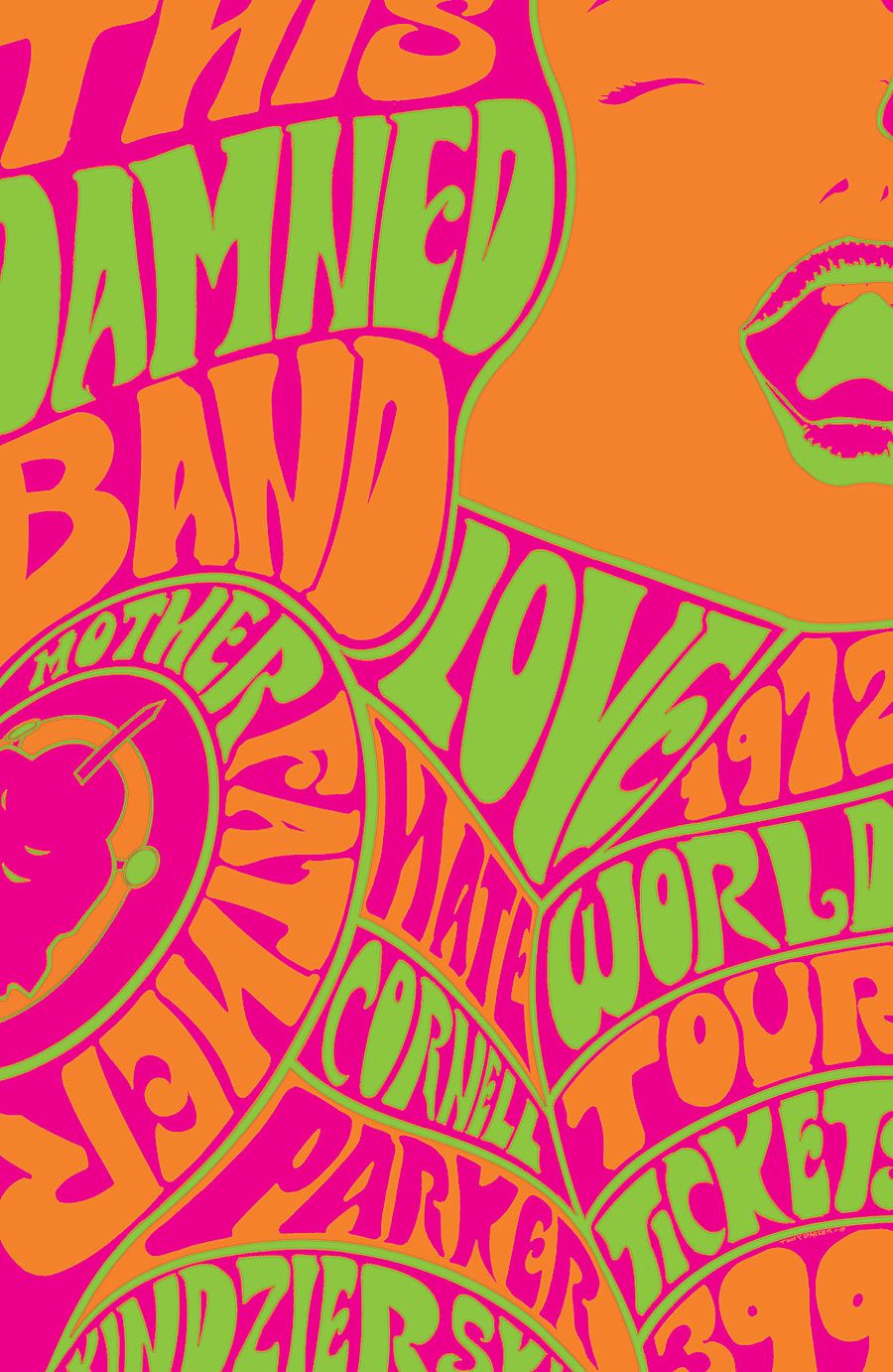One has to wonder if writer Paul Cornell and artist Tony Parker lived a past life as bandmates in a 1970's era rock band; though their portrayal of such a group may or may not be realistic, it's certainly convincing in "This Damned Band" #1. The fictional band Motherfather is a successful quintet of diversely-personified musicians who publicly praise the occult in interviews and their music, but only support it as part of their act. The title of the comic implies some consequence to that persona, and Cornell begins to address that late in the issue; however, the strength of this introduction is the characterization of the band members and supporting cast and the story's immersion into the scene of the day.
Parker and colorist Lovern Kindzierski guarantee at least a peek at the contents inside with the psychedelic, stylistic black light poster cover, which is largely word art but eye-catching to both those familiar with this era as well as anyone who isn't colorblind. The credits page on the inside follows a 70's rock poster theme, with gradient colors and careful typography. Before even beginning the story, designer Nick James grabs readers with a look that's near-perfectly executed by Parker and Kindzierski.
When the story begins, Parker takes charge by rendering a convincing band that looks as though it comes straight out of the "me decade," borrowing clothing and hairstyles of the day but assembling them at a micro-level that makes Motherfather look like a genuinely original group, rather than archetypes of real-life musicians. Parker carries this throughout the issue and his individualizations are complemented by Cornell's personalities; bassist Alex is the atypical well-dressed sex seeker, lead guitarist Kev is the mindless stoner and Justin is the flamboyant and attention-seeking lead singer. The remainder of the band is also well-characterized, as are other players, such as the band's demanding manager and their boundary-pushing lead groupie.
Parker's lines are smooth and crisp, making for a moderately realistic look that plays well into the documentary-style layout of the issue. Most of Parker's panels are from the perspective of a camera lens, and Cornell uses this format to introduce readers to the group's status quo. The issue is largely exposition, but this is scarcely noticed as -- like any well-done documentary -- Cornell ensures that readers learn something about the band and their situation through events that are generally only seen off-camera.
When the band ingests a few magic mushrooms, however, things change, both for the band and readers. Parker superbly renders the collective mindtrip in an almost manga-influenced style, which is an unexpected look but one that plays more consistently with the otherwise realistic feel of the story. It's entirely likely that the exploration of the band's connection to the occult won't be missed by readers, as Cornell and Parker keep the story plenty energized without it, but the very final page of the issue brings this to the surface. At least, it appears to, as the scene could very well be a mushroom-induced hallucination, but this uncertainty only adds to the appeal of the cliffhanger.
A fictional discography follows the story and adds both some more insight to the history of Motherfather as well as depth to the group and the issue itself. "This Damned Band" #1 is a triumph and a strong, fascinating introduction.

